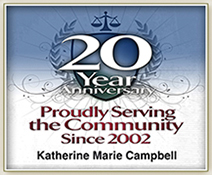Help! My Spouse Is Hiding Money From Me
 I commonly hear this from scared clients in the beginning of a divorce. Fears your spouse hid money is a common and stressful fear. As an experienced Certified Family Law Specialist* practicing in Santa Clara and San Mateo Counties, I know that the court requirements go a long way towards ensuring that all financial data is disclosed so clients have the data they need to make informed decisions.
I commonly hear this from scared clients in the beginning of a divorce. Fears your spouse hid money is a common and stressful fear. As an experienced Certified Family Law Specialist* practicing in Santa Clara and San Mateo Counties, I know that the court requirements go a long way towards ensuring that all financial data is disclosed so clients have the data they need to make informed decisions.
California divorces require each spouse to exchange all information regarding your assets, debts, income, and expenses. Even those owned prior to marriage, owned solely by one spouse or owned jointly with a different person must be disclosed.
The documents exchanged are collectively called the Preliminary Declarations of Disclosure (PDDs). These financial documents are not public. Generally, the complete package is not provided to the court. The PDDs provides a snapshot in time of the asset and debt balances. It also helps identify the money coming in and going out of the household each month.
The PDDs are a common tool to decide how to share income, assets, or debts using the values as placeholders for the discussions. The final balances will be updated before any final property or debt division. Let’s explore the paperwork you’ll need for the PDDs:
Financial Records
Collect vital financial documents, including all pages of the statements for your each of you checking and savings accounts, , investment accounts, retirement accounts including pension and 401ks..These records will be essential for asset division.
Property Records
Collect the current title document for each piece of real property that either you or your spouse jointly or individually own (homes, condominiums, land, etc.). If you sold property in the past or any non-marital funds went into currently owned property, then collect documents for those transactions to prove the source funding for any contributions you want back.
Personal Property
Personal property are those common items you find in homes. The items can be jointly or individually owned. Art or coin collections, investments in precious gems or other high value items may require appraisals to establish the value. For more common personal property items such as clothing, appliances, recreational equipment, tools, etc., I often encourage spouses to skip the document collection process for each toaster and blender and divide the items on their own. Engaging an attorney to help resolve personal property conflicts will often cost families more than the items’ values. If you need ideas on resolving things with your spouse, reach out to me.
Debt Records
Compile statements regarding outstanding debts such as mortgages, car loans, credit card balances, and other loans. Proper management and division of debt is a significant part of the divorce process.
Income Information
Provide detailed information about your income, your spouse’s income, investment income and any other sources of income. If you have received any stock units or options, you must provide the grant documents and vesting schedules for each stock grant you have received during marriage if not previously sold. If stock has been sold recently you may need to provide sale documents. Finally, PDDs must also include your tax returns for the last 2 years.
In a collaborative divorce, both spouses work alongside legal professionals to reach agreements outside the courtroom. This collaborative process encourages cooperation, minimizes conflict, and frequently leads to a more harmonious resolution.
At Campbell Family Law offices, Kathy Campbell works in the out-of-court processes of mediation, collaborative divorce, and collaborative mediation to provide clients the flexibility they need and want.
Contact Kathy today to see how she can help you and your spouse divorce amicably.
Note: This information is general in nature and should not be construed as legal/financial/tax/or mental health advice. You should work with your attorney, financial, mental or tax professional to determine what will work best for your situation.
*Certified by the State Bar of California Board of Legal Specialization


